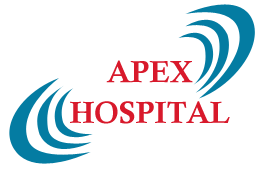Treatment for Shoulder Problems in Athletes: Getting Back in the Game Stronger
For athletes, the shoulder is a powerhouse, essential for throwing, swimming, serving, or lifting. However, this high demand often makes it highly susceptible to injuries, leading to persistent joint pain and sidelined careers. Effective treatment for shoulder problems in athletes requires a specialized approach, combining advanced Orthopaedics with sports-specific rehabilitation. An experienced Orthopedic surgeon or Sports injury clinic is crucial for diagnosing the issue accurately and guiding athletes back to peak performance, aiming for the best orthopedic treatment available.
Understanding Athlete’s Shoulder Problems
Athletes often face a unique set of shoulder challenges due to repetitive stress, overuse, or acute trauma. Common issues include:
- Rotator Cuff Injury: This is perhaps the most frequent culprit. Tears (partial or complete) or inflammation of the rotator cuff injury tendons can severely impact throwing, overhead movements, and overall shoulder strength, causing significant muscle pain treatment needs.
- Ligament Injury and Instability: Repetitive motions or sudden forceful movements can stretch or tear shoulder ligament injury, leading to instability or recurrent dislocations.
- Impingement Syndrome: Tendons get pinched in the shoulder joint, causing pain during arm elevation.
- SLAP Tears (Superior Labrum Anterior to Posterior): Tears in the labrum (rim of cartilage around the socket), often seen in overhead athletes.
- Fractures: While less common, acute accident injury treatment can lead to bone fracture treatment in the shoulder, which a Trauma surgeon might initially handle. Even seemingly minor fractures can impact future joint mechanics.
- Osteoarthritis: Though generally seen in older populations, high-impact sports can accelerate joint wear, potentially leading to Arthritis treatment needs in the shoulder.
Comprehensive Diagnosis: The First Step Towards Recovery
A thorough evaluation by an Orthopedic doctor specializing in sports injuries is paramount. This goes beyond a basic X-ray for bone fracture and includes:
- Detailed History: Understanding the athlete’s sport, training regimen, specific movements that cause pain, and previous injuries.
- Physical Examination: Assessing range of motion, strength, stability, and performing specific tests to pinpoint the injured structures.
- Advanced Imaging: Often, an MRI is required to visualize soft tissues (tendons, ligaments, cartilage) that may not show up on X-rays.
Tailored Treatment Approaches for Athletes
The goal of treatment for shoulder problems in athletes is not just pain relief, but a safe and complete return to sport. The approach varies based on the injury’s severity and the athlete’s goals:
- Conservative Management: Many injuries, especially mild ligament injury or rotator cuff injury tendinitis, respond well to non-surgical methods. This includes rest, anti-inflammatory medication for joint pain relief and muscle pain treatment, targeted physiotherapy, and sometimes injections. A Sports injury clinic often emphasizes these initial conservative strategies.
- Arthroscopic Surgery: For more severe or persistent problems like significant rotator cuff tears, labral tears, or recurrent instability, arthroscopy (minimally invasive keyhole surgery) is often the preferred choice. An Orthopedic surgeon can precisely repair damaged tissues with less trauma, leading to quicker recovery.
- Open Surgery: In rare, very complex cases, open surgery might be necessary.
Rehabilitation: The Bridge Back to Performance
Regardless of the treatment path, a structured and sport-specific rehabilitation program is critical. This involves:
- Pain and Swelling Control: Initial focus on managing discomfort.
- Restoring Range of Motion: Gradually regaining full movement.
- Strengthening: Building strength in the shoulder and surrounding muscles.
- Proprioception and Stability Training: Re-educating the joint for better balance and control.
- Sport-Specific Drills: Progressing to exercises that mimic actual movements required in the athlete’s sport.
The long-term success often depends heavily on patient compliance with this rehabilitation. While your Bone doctor guides the bone healing, the physiotherapist plays a vital role in restoring function.
Just as a joint replacement surgery specialist meticulously plans procedures like Knee replacement surgery (Total knee replacement, Partial knee replacement) or Hip replacement surgery for lasting relief of knee pain treatment or hip pain treatment, the same level of precision and dedicated rehabilitation is applied to complex shoulder repairs in athletes. Other related orthopedic concerns like Spinal cord injury treatment, Sciatica treatment, or Disc bulge treatment are typically managed by a Spine doctor, but an athlete’s overall physical condition is always considered. For younger athletes, a Pediatric orthopedic doctor has specialized expertise in growing bones. Even issues like Osteoporosis treatment are evaluated to ensure optimal bone health for healing and performance.
Apex Hospital: A Hub for Orthopedic Excellence in Nagpur
Located in Nagpur, Apex Hospital stands as a leading healthcare institution renowned for its comprehensive orthopedic services. With a team of highly skilled Orthopedic doctors and Orthopedic surgeons, the hospital specializes in advanced procedures including Knee & Hip Joint Replacement and complex Trauma Surgeries, as well as dedicated services for sports injuries and advanced shoulder procedures. Apex Hospital is equipped with state-of-the-art diagnostic facilities for X-ray for bone fracture and more, ensuring athletes receive the best orthopedic treatment and compassionate care to facilitate their safe and strong return to play.

